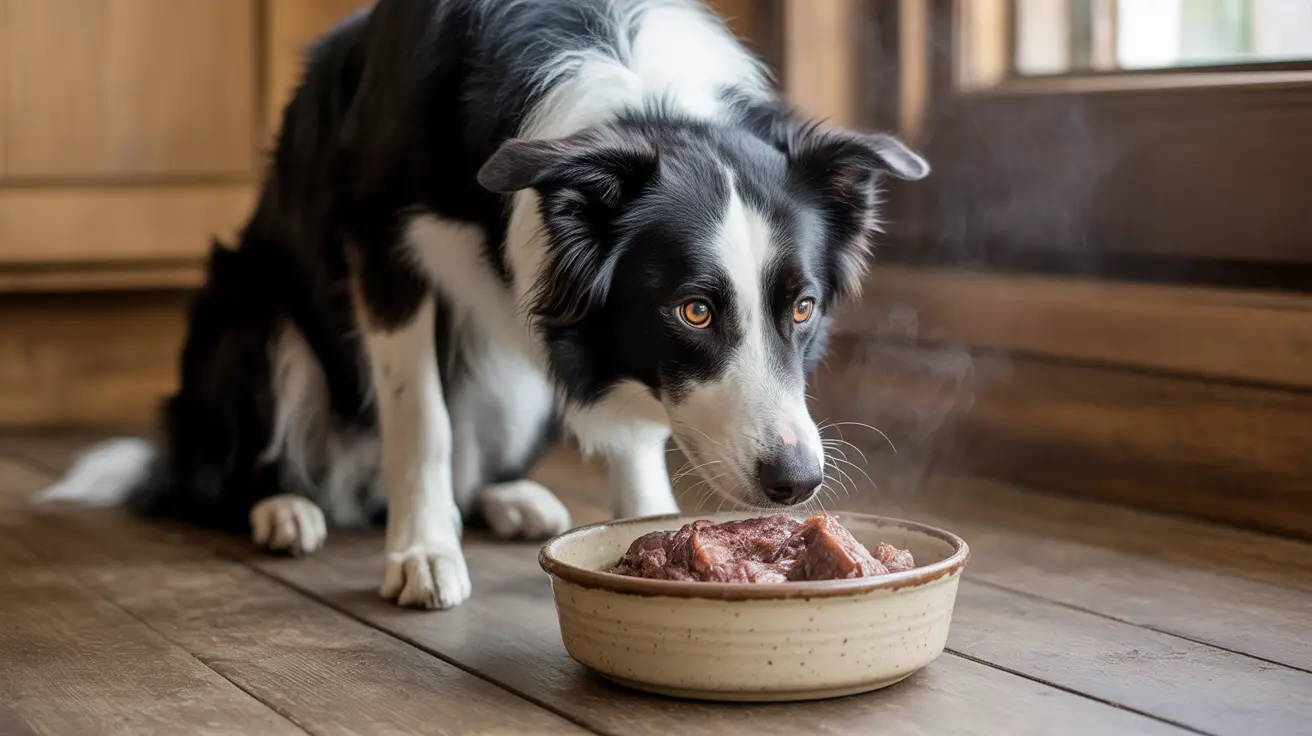Wondering if your furry friend can enjoy deer meat? The good news is that dogs can safely eat venison, and it can be an excellent addition to their diet when prepared correctly. This comprehensive guide will explore everything you need to know about feeding deer meat to your dog, from its nutritional benefits to important safety considerations.
As a lean protein source rich in essential nutrients, venison offers unique advantages for dogs, especially those with food sensitivities or allergies to common proteins like chicken or beef. Let's dive into the details of why and how to incorporate deer meat into your dog's diet.
Nutritional Benefits of Venison for Dogs
Deer meat packs a powerful nutritional punch for dogs. It's naturally lean, containing significantly less fat than beef or pork, making it an excellent choice for weight management. The meat is rich in essential B vitamins, including B6, B12, and niacin, which support your dog's energy metabolism and overall health.
- High-quality protein for muscle maintenance
- Essential minerals like iron and zinc
- Lower fat content than traditional meats
- Complete amino acid profile
- Rich in B vitamins for energy metabolism
Safe Preparation and Serving Methods
While venison is generally safe for dogs, proper preparation is crucial. Cooking the meat thoroughly is recommended to eliminate potential parasites and harmful bacteria. Never serve your dog seasoned venison, as many common seasonings can be toxic to dogs.
- Cook thoroughly to an internal temperature of 165°F
- Avoid adding seasonings, salt, or spices
- Remove all bones before serving
- Start with small portions to test tolerance
Venison for Dogs with Food Sensitivities
As a novel protein source, venison can be particularly beneficial for dogs with food allergies or sensitivities. Many veterinarians recommend it as part of an elimination diet to identify food allergies. The meat's unique protein structure makes it less likely to trigger allergic responses compared to common proteins.
Potential Risks and Precautions
While deer meat is generally safe, there are some important considerations to keep in mind. Wild venison may carry parasites or diseases, so it's crucial to source meat from reliable suppliers. Additionally, some dogs may have individual sensitivities to venison, despite its reputation as a hypoallergenic protein.
How to Introduce Deer Meat to Your Dog's Diet
When introducing venison to your dog's diet, follow a gradual approach. Start with small amounts mixed with their regular food and observe their reaction. Increase portions slowly over several days while monitoring for any digestive issues or allergic responses.
Frequently Asked Questions
Can dogs safely eat deer meat, and what are the main health benefits of venison for dogs?
Yes, dogs can safely eat deer meat. The main benefits include lean protein content, essential B vitamins, minerals like iron and zinc, and its suitability as a novel protein source. Venison is particularly beneficial for dogs needing weight management or those with food sensitivities.
Is deer meat a good protein choice for dogs with food allergies or sensitive stomachs?
Yes, venison is an excellent choice for dogs with food allergies or sensitive stomachs. As a novel protein, it's less likely to trigger allergic reactions compared to common proteins like beef or chicken, making it ideal for elimination diets and sensitive dogs.
Should I feed my dog raw or cooked venison, and what are the safety risks with wild game?
Cooked venison is generally safer than raw, as cooking eliminates potential parasites and harmful bacteria. Wild game carries additional risks of diseases and parasites, so it's best to source venison from reputable suppliers and cook it thoroughly.
Can I give my dog deer bones or antlers as chews, and how do I do this safely?
While raw deer bones can be offered as chews, they must be appropriately sized and given under supervision. Never give cooked bones, as they can splinter and cause injury. Remove bones after 30 minutes of chewing to prevent bacterial growth.
How do I introduce deer meat into my dog's diet, and are there any dogs that should avoid venison?
Introduce venison gradually over 7-10 days, mixing small amounts with regular food. While most dogs can eat venison safely, those with specific protein allergies or certain health conditions should avoid it. Consult your veterinarian before making significant dietary changes.






